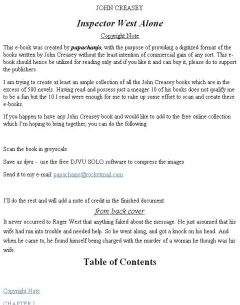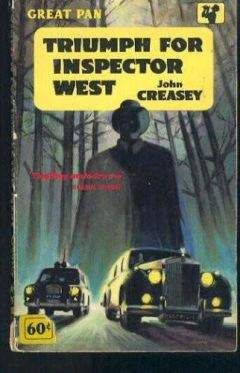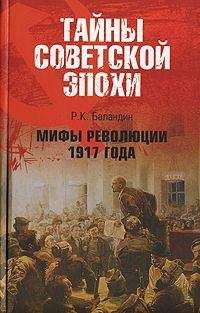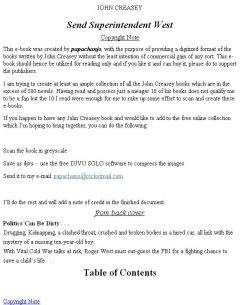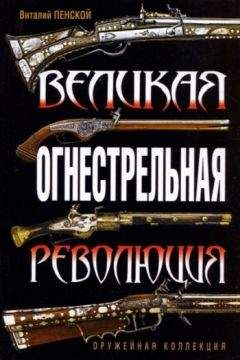John Creasey - Inspector West At Home
“Well, that didn’t take long,” Tennant said, almost wistfully. “Anyone else coming, West?”
“Soon, I hope,” Roger said.
Neither Oliphant nor Cartier spoke again. Roger handcuffed them to each other in another room, with Mark and Tennant to watch them. He gave the maid careful instructions, then returned to the lounge. Mrs Cartier was standing by the window, her face expressionless and her cheeks colourless. Roger looked out and saw one of Morgan’s men at the street corner, just walking out of sight.
He wondered whether Abbott would come. He did not feel like talking, although he wished the woman would break the silence. Suddenly, she turned and took a cigarette from a box on the table. She looked at him levelly as he lit it for her.
“How long have you known that my husband was involved in the crimes?”
“Not very long,” Roger said.
“Did I so much as hint at it?”
“You did not,” Roger assured her. “You did all you could, Mrs Cartier, to hide that. I wish —”
“Please!” she said, then went on slowly. “I have always been afraid of it, but what could I do, what could I do? He — is my husband. I could not bring myself to believe it. Gradually, I learned what was happening, how they worked, what Pickerell did, what poor Lois Randall was forced to do. But for the agonising fear that Sylvester was concerned, I would have told the police much earlier. When I learned about you —” she drew a deep breath. “You know what I did. I told him, also, to warn him. When he did not show any resentment I thought, I prayed, that I was wrong. But that record — the 13th — I knew how superstitious he was, how everything worried him — spilled salt, ladders — a hundred things.”
Roger said : “How much more do you know, Mrs Cartier?”
“Not much more than you must know already,” she said. “Oliphant arranged most of it, I think. My — my husband knew the people whose goods were sent here. He was always friendly with those in authority on the Continent, but so were many others. I knew a little of Malone. I learned much from tapes which you have not heard; I hid them, but you will be able to use them now.” She went on tonelessly. “They showed up everything, Inspector. One says that the man Leech was to be killed, the ‘Chief’ had ordered it — always they talked of the “Chief”, never did they give him a name. I tried to pretend that there was hope even if it were my husband. I should have known better. I knew that Malone and his men were employed sometimes, that there was a policeman who gave information away — he had done so for several years. When it appeared that some policeman suspected it, it was decided to make out that you were the man. That satisfied — superstition, as well. Malone introduced this policeman to Pickerell. I do not know who it is.”
“Do you know where Pickerell is hiding?” Roger asked.
“No,” said Mrs Cartier.
“You’re sure you’ve not heard the name of the policeman ?”
“I have not,” said Mrs Cartier. She drew a deep breath. “Do you think he will come?”
“Yes.”
The woman fell silent. Roger stepped to the window and looked out — and, after a few minutes, saw a taxi draw up. Close behind it .there came a private car. He saw Sam and another of Morgan’s men approaching, closing in as he had instructed. His jaw stiffened when he saw Abbott climb out of the second car with Tiny Martin. He could not see who was in the taxi, it drew up too close to the building. Abbott and Martin disappeared from his sight, another car, doubtless with Sloan inside, came down the street.
Morgan’s men waited.
Roger turned and looked towards the door. The waiting seemed unending but at last there was a tap on the passage door; the maid opened it and a man stepped through.
“Is Mr Cartier in?” he asked.
“No,” said the maid, repeating a lesson, “but Madam is in.”
“It doesn’t matter,” the man said and Roger’s mouth dropped. He could not really believe the evidence of that voice. He knew it well, but it was not Abbott’s. “As soon as your master returns, tell him to go north, as arranged. Do you understand? Tell him to go north. And tell him there is the possibility that someone will have to travel from Chelsea, also.”
The maid said : “I will tell him.”
“All right,” said the man; his voice was unmistakable — it was Cornish !
Seeing him through a gap in the door Roger hardly recognised him, for Cornish had dyed his hair, was wearing a mackintosh with the collar turned up and looked disreputable. Only the voice condemned him. “Tell him to hurry,” Cornish repeated.
There was a pause followed by a gasp.
“Look out, Martin !” Abbott called out. . Cornish pushed his way into this room, slammed the door, and demanded :
“Where’s the back door?”
“It’s no good, Cornish,” said Roger.
The man swung round. His mouth gaped open, his hand seemed to sag in his pocket. There was a moment of utter silence before Cornish stiffened. Roger moved swiftly to one side, but he had never been more glad to see Tennant launch himself forward with his bewildering speed. Cornish fired once from his pocket, but the bullet hit the floor. Then he went down underneath Tennant, who kept his balance and stood over his victim. He put his heel on Cornish’s wrist, forcing the gun away. Roger kicked it aside.
Mark opened the front door, to admit Abbott and Martin.
“Well?” Abbott said, flatly. He looked at Tennant’s victim. “Is it Cornish?”
“Yes,” Roger said gruffly.
“I was afraid so from the time Malone tried to escape. Only Cornish could have given him that key.” It seemed an effort for Abbott to speak. “He went to Leech’s public house but did not come out as himself — Martin and I thought he looked like Cornish. So we’ve reached the end of the hunt, West?”
“Yes, it’s over,” said Roger heavily.
He realised that Cornish had been transferred comparatively recently from AZ Division. When on the Division itself, he had worked only in the East End, where he had ample opportunity to work with Malone. The failure to keep constant guard at Welbeck Street had been his responsibility. The time taken tracing Dixon, were all explained. So was Malone’s confidence.
Yet even the day when Cornish had been the first Yard man to offer him friendly help, Roger had not given him a thought.
It proved that Cornish had telephoned the Yard several times, and had eventually heard about Oliphant. He had acted quickly, not knowing that he himself was followed. No Yard men had been stationed at Bonnock House. Cornish had felt quite safe to come in person, when he discovered that Carder’s telephone was out of order.
Cornish tried to save himself by making a complete confession. That, the tapes and the other evidence made the case damning .against all three men. Lois Randall had been a victim of circumstances, precipitated by her own lapse. Malone’s part as the ‘strong man’ of the organisation was fully disclosed; ordinary theft had gone on side by side with the distribution from the Society.
Pickerell had been the intermediary, approached by Car- tier to handle the distribution. He had known Malone, and had linked the two organisations.
In Chatworth’s office late that night, Roger told his part of the story. Abbott was there, thin-voiced and aloof as ever.
“So we have it all,” Chatworth said with deep satisfaction. “You didn’t need to use Morgan’s men very much, either. I must say you handled that part of it well; even without Abbott you would have got Cornish.” He smoothed his hair, flattening it against the sides of his head. “What of Pickerell?”
“His body was found in Leech’s public house,” Abbott said.
“Do you know who killed him ?”
“Malone did just before he left for Fulham. I think Pickerell was losing his nerve,” said Abbott.
“I wouldn’t be surprised,” said Chatworth. “Well, West, you seem to have had the thick end of the stick most of the time. Not a nice story about Cartier. There’s no case against his wife, though,” Chatworth said. “Have you got the full story of the Cox murder?”
“Cornish says that Cox murdered his wife and that there was no motive apart from that we already knew,” said Roger. “Oliphant defended Cox because he was afraid of what the man might say, but Cox only knew the Malone end of the organisation. I once believed that Cox was drugged but I was wrong. He knew he would hang, anyhow, and saw no point in ratting on Malone. He believed that Malone was paying Oliphant, and so doing his best for him. Cox didn’t know about Cornish. Only Malone, Pickerell and Cartier knew him.”
“What about the Randall girl?”
“We know how she came to get mixed with them,” said Roger. “I shouldn’t think we could get a conviction even if we charged her.”
“One of your troubles is that you’re an incurable romantic,” Chatworth growled. “Oh, you’re right, West. One of these days you’ll be right too often. It’ll do you good to have a failure. Eh, Abbott?”
Abbott considered. “It might,” he admitted, frostily.
Roger smiled. “Very good of you to say I’ve never had one, sir!”
“Eh?” barked Chatworth. He laughed. “All right, West, you’ll do! I hear that you’ve got some tidying up on hand at your house. Oh, that reminds me — the taxi-driver, Dixon ?”
Roger grimaced.
“He was used to try to make us concentrate on Mrs Car- tier and to head us off Cartier himself,” he said. “I think it was that which first started me thinking of the man — Malone’s effort to make Dixon implicate the woman was too clumsy. Malone was always too clever; I’ve never seen a man with such conceit.”
“You won’t see him much longer,” Chatworth said. “All right, off with you !”
When Roger had gone, the AC looked thoughtfully at Abbott.
“What’s your opinion of West?” he demanded.
“Much brighter than it was a week ago, sir,” said Abbott, with wry humour. “I always found it a trifle difficult to believe his guilt. I ought to say this, however. The money was left at his house. Morgan did take it away.”
“Are you sure ?”
“Yes,” said Abbott. “The man who put it there has said so. Also, West asked a sergeant to trace two five-pound notes which proved to be two of two hundred sent by Leech on Malone’s orders. Leech’s prints were on some of the notes. The balance reached us by post this evening — the wrapping paper is bare of prints. I suspect that one of Morgan’s men posted it, on West’s instructions.”
“Hum.” Chatworth looked over his glasses. “Can we really prove it? And if we can, do we want to? Morgan has been very helpful.”
Abbott smiled thinly. “I don’t think we can and I don’t think we should, sir.”
“Then we agree,” said the AC. “Well, you’ll have to start clearing up, Abbott. Give West a couple of days to get over his home troubles, and then get him busy, too.”
Roger meanwhile telephoned Wray and Tamperly, delighting the pressmen, and made a comprehensive report. He was still in his office when Abbott telephoned to say that he need not come in for a day or two. Roger put on his hat and coat and left the Yard. He drove to Fulham, where he found Mark and Tennant sharing one spare room, the small room being occupied by Lois Randall who, said Janet, was asleep. Dixon had gone.
Janet was waiting in the dining-room. She looked a little tired and troubled. The wrecking had affected her far more than she had let Roger think, but she brightened up soon.
The Echo and the Cry and their associated evening papers gave the case enormous publicity. One of the Sunday newspapers tried to run a series of articles on Mrs Cartier but failed because they could not get any information of great interest.
She gave her evidence, at the trial, against some of the men but not against her husband. She was in court when the jury returned the verdicts, the black cap was donned and the sentences were passed. Then she left. Outside, she saw Janet and Lois.
Janet smiled, uncertainly.
Mrs Cartier approached, shook hands, and hurried off”.
Soon afterwards Roger was able to tell her that the Society was working again, that Lois was reinstated as secretary but as Lois Tennant, not Lois Randall. Tennant was back in the north, finishing his Army service.
Mark said that nothing would ever satisfy the boisterous energy of that tough young man.
In midsummer a furniture van drew up outside the Bel Street house. Roger was at the Yard and Janet opened the door. She thought that there must be some mistake, until she read the note that the foreman remover had brought with him.
“Roger!” breathed Janet into the telephone, five minutes later. “Darling, it’s incredible, but — Mrs Cartier!”
“What about Mrs Cartier?” asked Roger, startled.
“She’s sent us all the furniture from the lounge at her Weybridge house. She is giving the place up. Darling, it’s twice as good as anything we ever had ! I know the sentimental value isn’t the same but do you think you could get home early and help me put the room straight ? And shall I ask Mark?”
“My sweet, I’ll be home by four sharp!” promised Roger.
THE END
